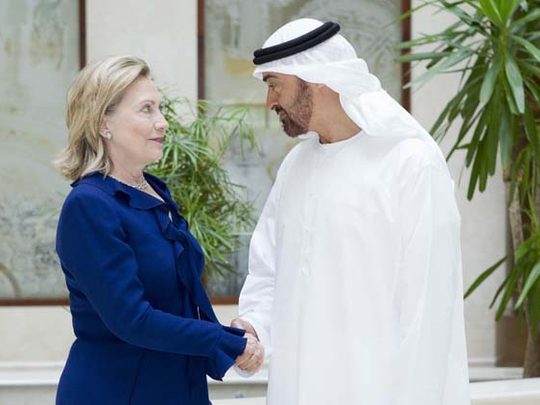
US Secretary of State Hillary Clinton's visit to the UAE, Oman and Qatar began with a first stop in Abu Dhabi. Clinton met with government officials to discuss a plethora of regional and bilateral issues.
The agenda of her trip emphasises the importance of government-civil society engagement in addition to interacting with civil society and community leaders in each country and working to help citizens realise shared aspirations for progress.
This level of engagement will underline the US commitment to supporting civil society and promoting partnerships that lead to prosperity for the people of the region.
Be that as it may, the two burning issues that Clinton should also address — and with utmost clarity — is the Palestinian question and the Iranian nuclear issue.
Israel continues to follow a policy of non-compliance with regard to colonies and a tangible stand must be taken to ensure that the government of the Palestinian National Authority (PNA) is supported towards achieving a state of peace.
With regard to Iran, an authoritative approach must be taken with a clear audit trail to ensure the Middle East does not witness a nuclear arms race. In terms of model examples the US need only look at the UAE and its pursuit of nuclear energy strictly for peaceful means.
The UAE must also be looked upon as an equal partner when it comes to consultations regarding peace and security of the region, specifically with the tone of negotiations adopted with Iran.
The UAE has always championed the full participation of the GCC countries in negotiations with Iran and the US must facilitate this. The UAE only seeks peace in the region — free from any military tension and the avoidance of an arms race. This country is one among a few that are examples of moderation and tolerance in the global community.







